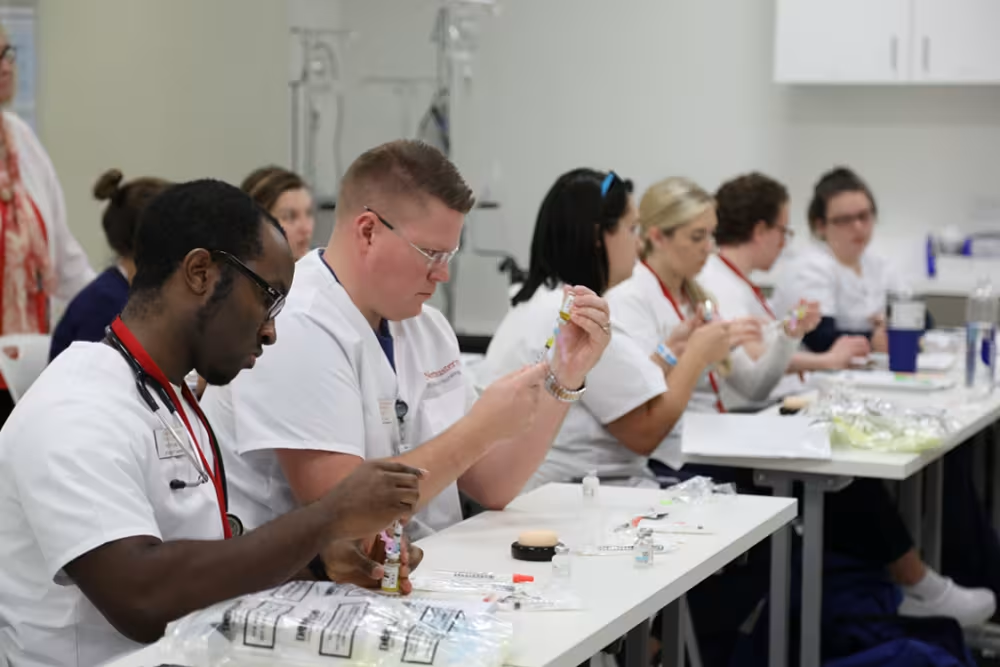Experiential Learning through Nursing Simulation Labs
Serving as the bridge between your online coursework and clinical rotations, hands-on nursing skills and nursing simulation labs are vital to your accelerated nursing education.
During these nursing labs, you and members of your cohort get together to apply the nursing theories and concepts you learned online under the guidance of highly supportive clinical instructors.

At the beginning of the nursing program, you can expect to attend labs once or twice a week at our ABSN site in South End Charlotte, NC; Fall River, MA; or Burlington, MA, depending on where you decide to enroll in the program.
Nursing Skills Labs
Equipped with advanced hospital equipment, clinical task trainers, and full-body manikins, our nursing skills lab sets a realistic stage for clinical practice. It’s also a safe, effective teaching environment where instructors view mistakes as learning opportunities.
Through these nursing labs, you’ll learn how to apply basic nursing procedures such as:
- Catheterization
- Intermuscular injections
- Oxygenation therapy
- Physical assessments
- Tracheostomy care
- Wound care
Furthermore, you’re encouraged to come to your designated lab location during open hours to practice your skills independently, with peers, or with lab assistants.
Nursing Simulation Labs
Nursing simulation labs are safe, contextual learning environments where you and your peers integrate theory with practice while making real-time clinical decisions. These labs develop your critical thinking, problem-solving, and collaborative skills across the patient care continuum.
Each simulation supports a specific learning objective, with the scenarios getting more intense as the curriculum progresses. Your first few simulations, for example, focus on the basics of nursing practice, while subsequent simulations require you to think on your feet in complex care situations.
The professors are good at reminding us that lab is where you make mistakes,” says Patti, ABSN student.

What to Expect During a Simulation Lab
Depending on the scenario, you may treat a standardized patient (a trained actor) or a high-tech manikin. Able to talk, bleed, and reproduce biological functions, simulation manikins typically play the patient role in high-risk scenarios such as cardiac arrest or severe hemorrhaging.
Following each simulation, you meet with faculty for a debriefing session. During these debriefings, you’re encouraged to reflect on the experience openly and express how you think you did. In turn, your instructor can understand your clinical approach and provide the appropriate feedback.
We don’t grade simulations because it would alter the intent of the learning experience. We want you to be able to take an honest, unbiased look at your performance instead of automatically feeling like you have to defend your actions.
Overall, practicing your skills in a mock clinical setting helps boost your confidence, which makes for an easier transition into the real world.

For More Information
Contact us to learn more about how our nursing skills and nursing simulation labs bring a major dose of reality to your accelerated nursing education.
